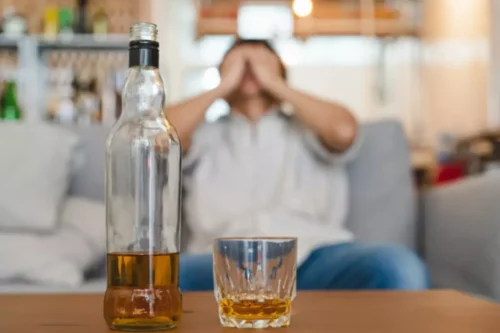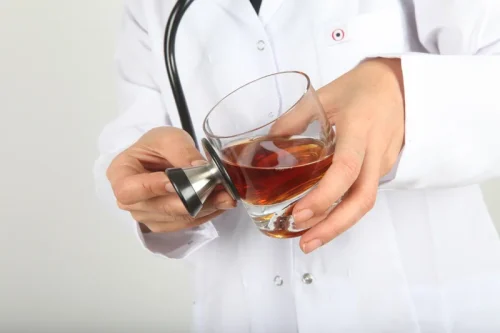
If you drink alcohol on a hot day, your body won’t be able to adjust and control your internal temperature effectively, which increases the risk of heat stroke. While it can be tempting to consume alcohol on a hot summer day, the combination of high temperatures and alcohol can cause considerable fluid loss and dehydration. https://ecosoberhouse.com/article/alcoholics-heart-problems-cardiomyopathy/ Research published in Circulation found that potassium mitigates the adverse effects of alcohol on cardiovascular function and reduces the risk of high blood pressure. Alcohol restricts blood vessel dilation and increases heart rate, which explains why drinking can cause arrhythmia and elevated blood pressure.
How much water does it take to rehydrate?
“Antioxidants help the body fight off free radicals that can damage our cells and organs.” Thirst, lightheadedness, and dark urine are three signs of dehydration, but there are many others to watch out for. We’ve had a night out, and the next morning we wake up and aren’t feeling well. Even moderate drinking affects your daily caloric intake, which at high levels can cause weight gain. Port wine is made in many different styles, all of which have a higher alcohol level (up to 20%) than other red wines because of the distilled grape spirits that are added during fermentation. Port wines are very sweet, have a lot of flavor, and are full-bodied, so you can sip them alone or pair them with cheese or nutty desserts.
Vision loss
Electrolytes are essential for maintaining proper hydration, as they help regulate fluid levels in our bodies. When you does red wine dehydrate you consume wine, it can disrupt this delicate balance. Alcohol is a diuretic, which means it increases urine production.
Can IBS Cause Dehydration?
A small study in 10 people found that consuming 537 mg of caffeine, or about 6 cups of coffee, significantly increased urine production. Meanwhile, consuming 269 mg of caffeine, or about 3 cups of coffee, didn’t affect fluid balance (3, 4). Taking steps to avoid the overconsumption of alcoholic, caffeinated, and sugary beverages may help a person avoid dehydration. Water, electrolyte sports drinks, and certain herbal teas are better options to remain hydrated. However, replenishing lost electrolytes is equally important.

- When you’re severely dehydrated, it can take several days for a full recovery.
- While some studies have shown the health benefits of drinking red wine, you should weigh the benefits against the risks and keep in mind the dangers of alcohol abuse.
- If you notice a dry mouth or other signs of dehydration, stop drinking alcohol and prioritize hydration.
- Underlying conditions that are causing dehydration should also be treated with the appropriate medication.
- This will help maintain your body’s hydration levels and counteract any potential dehydrating effects of wine.
They were also the only group to experience a significant drop in components of metabolic syndrome. People who drank either red or white wine also reported better sleep quality than the group that drank water, and the researchers found no significant adverse effects with any group. Furthermore, be mindful of the alcohol content in the wine you choose. Opting for lower alcohol wines can reduce the potential dehydrating effects. Antioxidants in red wine called polyphenols may help protect the lining of blood vessels in the heart.
Yes, rehydration is one of the best ways to reduce hangover symptoms. When you’re thirsty — or after you’ve gone for a run — you probably don’t reach for a beer, and you certainly don’t mix an Old Fashioned. Acetate and other waste products are then removed from the body as carbon dioxide and water, primarily through lungs.

Other risks of alcohol consumption
Alcohol can lead to dehydration, but why does alcohol dehydrate you? When we drink alcohol, it gets absorbed into our bloodstream through our stomach but mostly through our small intestines. From there, the alcohol is processed by enzymes in the liver. As the liver breaks down the alcohol, it is converted into a substance called acetaldehyde, which can be toxic in high doses. Our liver quickly works to break down acetaldehyde into acetate. According to science, about 90% of alcohol is eliminated by our liver, but 2-5% of alcohol leaves our body through urine, sweat, or breath.
- Significantly high levels of caffeine intake may contribute to dehydration by stimulating the body to release more liquid than usual.
- However, the effects of certain types of alcohol may differ, as drinking 2 servings of beer did not have a significant effect (11, 12).
- The extent of these effects and how long they last may vary.
- Our liver quickly works to break down acetaldehyde into acetate.
- Electrolyte imbalance can exacerbate dehydration and worsen the unpleasant aftereffects of drinking alcohol, including headaches, low energy, muscle aches, and poor sleep.
- That will increase your ability to reabsorb water, and leave you more likely to wake up feeling sparkling and ready to face the day — or at least less inclined to put a pillow over your head.
- Resveratrol might help prevent damage to blood vessels, lower low-density lipoprotein (LDL) cholesterol, also called the “bad” cholesterol, and prevent blood clots.
Alcohol’s components are flushed from the body
- In another study in 20 older adults, drinking just 2 servings of wine increased short-term urine output.
- This may include medication available to purchase over-the-counter or online, such as anti-diarrhea medicines, anti-emetics (stop vomiting), and anti-fever medicines.
- While drinking plenty of water is crucial to compensate for the fluid loss caused by alcohol, water alone will not hydrate you.
- For example, poor saliva production due to dehydration leads to dry mouth, which can cause bad breath (halitosis).
- Red wine contains more resveratrol than white wine, as it is fermented with grape skins, while white wine is not.
- Alcohol, the main component of wine, disrupts the delicate balance of fluids in your body.